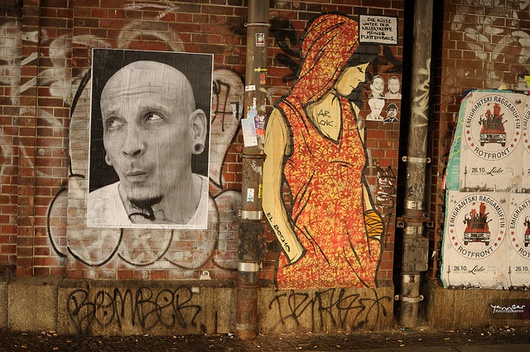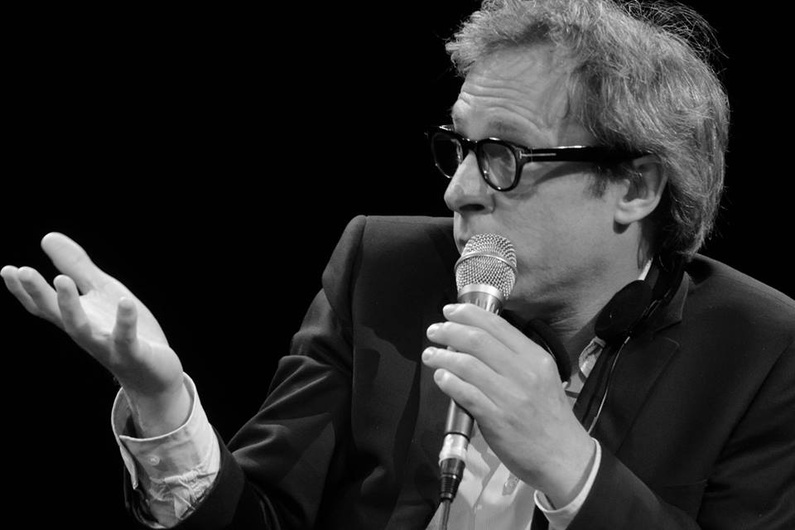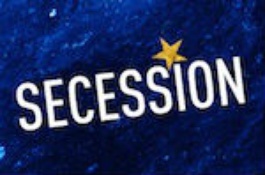
Camille de Toledo: "We need a European people"
Published on
Translation by:
 Danny S.
Danny S.
How do we create a new Europe and which language will it speak? In the context of the conference SECESSION, writers, philosophers and artists will dedicate themselves on September 23, 2014 to the future of the European idea. Camille de Toledo contemplates in advance how Europe will be able to continue. A guest contribution.
In a time, during which the European Union must bear the bitter results of the recent elections, we must take a moment to try to glimpse into the future. We know that a political European Union in the long-term is only acceptable and conceivable when a European demos (a European people, Ed.) emerges from it - one nation encompassing all nations. The EU requires a people, for without it only a "kratos" - or an imposing power - can come from a democracy. The lack of a people results in the success of the separatists and populists and leads to a strong movement towards the reterritorialization of identity.
How does a european nation emerge?
To respond to the diminishing perception of a "European entity," it is imperative that we call for a European nation. The keyword for an all-encompassing nation building within a multilingual region such as Europe, with its multilayered historical and exile-related experiences; for the dissemination of knowledge, education and information, liberated from the fear of others, shaped by emancipation and a new definition of civil interconnection, would for me be this one word: translation. This word forms the key to a new way of thinking about economic and political citizenship which is inclusive of varying identities. My dream for such a new nation is that it immediately take steps toward the revivification of the European project. Unfortunately we are still stuck in old thought patterns, in which the affiliation with one nation is inborn, hinging on one's mother tongue, education, community of values, history, culture, territorialism and borders.
 In the same token, we've already been living in a multilingual, multinational region for some time. We live in an intermediate space, between reality and fiction, between two countries, between a nation chosen for oneself and one ascribed at birth. The European Union has conceived of a unifying market, not a "country". Which country, which new form of citizenship could serve as an anchor in the European region? One could picture future Europeans as being citizen-translators or "trans-citizens": Certain theorists might conceive them as upgraded citizens who are permanently bound to an artificial intelligence like Joaquin Phoenix in Spike Jonze's recent film HER (2014). In this case we will have accepted Silicon Valley's post-human dream. We would wear Google's augmented-reality glasses that automatically translate newspaper articles. With an attached microchip with a language identification system, we would be able, like C-3PO in Star Wars, to speak every European language. But if one imagines the European citizen in this way, one ignores the question of a "nation," as well as the question of the emotional significance of language.
In the same token, we've already been living in a multilingual, multinational region for some time. We live in an intermediate space, between reality and fiction, between two countries, between a nation chosen for oneself and one ascribed at birth. The European Union has conceived of a unifying market, not a "country". Which country, which new form of citizenship could serve as an anchor in the European region? One could picture future Europeans as being citizen-translators or "trans-citizens": Certain theorists might conceive them as upgraded citizens who are permanently bound to an artificial intelligence like Joaquin Phoenix in Spike Jonze's recent film HER (2014). In this case we will have accepted Silicon Valley's post-human dream. We would wear Google's augmented-reality glasses that automatically translate newspaper articles. With an attached microchip with a language identification system, we would be able, like C-3PO in Star Wars, to speak every European language. But if one imagines the European citizen in this way, one ignores the question of a "nation," as well as the question of the emotional significance of language.
We need a europe infused with feeling
 A democratic demos isn't born from the insitutional regulations of rational citizens, but rather out of a mutual feeling that revolves around freedom and emancipation. If we want to continue to feel European, then it must be in the name of an affective connection to a literary, intellectual, artistic or personal history of intercultural relationships. It is a matter of deliberately identifying the opposition between an affective Europe and a Europe with a flat affect: a longed for, emotionally infused Europe and the Europe of the Euroland, which has been turned into a reactionary machine.
A democratic demos isn't born from the insitutional regulations of rational citizens, but rather out of a mutual feeling that revolves around freedom and emancipation. If we want to continue to feel European, then it must be in the name of an affective connection to a literary, intellectual, artistic or personal history of intercultural relationships. It is a matter of deliberately identifying the opposition between an affective Europe and a Europe with a flat affect: a longed for, emotionally infused Europe and the Europe of the Euroland, which has been turned into a reactionary machine.
Out of his dichotomy we propose the development of a Poetics of the Intermediate, a divided affect for the sake of jolting the old EU officials and to promote a new political vision of Europe in the 21st century. On a continent on which cultures and languages merge; where young Spaniards flee in throngs to Germany to find work in exile; where Polish people, young Tunisians or Chinese emigrate to France, Denmark or Italy: translation is no longer the affair of cosmopolitan elites. It is the centerpiece of our relationship to the world. In Europe the affirmation of a citizenry of translation would be a three-fold revolution:
1. To understand the demos-to-be as an effort of translation between multilayered identities.
2. The preservation of a political awareness of a linguistic ethos, in contrast to the development of a technocratic or mechanically produced language.
3. To build up the European project on a foundation that does not repudiate migration cultures, but rather uses them as points of reference.
 If, after the recent elections, we bemoan the lack of European sentiments, it is because such sentiments are currently diminishing in our transition from a generation of reminiscence to a generation of forgetfulness. We can't indefinitely avoid forgetfulness. The past that legitimized and shaped the European project is receding. Out of this past a European phantasmic people has emerged. We have built up the EU around a people that doesn't exist, a people of the dead. However, if we wish to promote the European project in the 21st century, we must develop it on the basis of a future nation, in which hopes and aspirations flourish. It is our wish that such a nation be bold. And if we already know that translation is its language, then it is out of this language that we must derive meaning, an ethics and a politics of imagination.
If, after the recent elections, we bemoan the lack of European sentiments, it is because such sentiments are currently diminishing in our transition from a generation of reminiscence to a generation of forgetfulness. We can't indefinitely avoid forgetfulness. The past that legitimized and shaped the European project is receding. Out of this past a European phantasmic people has emerged. We have built up the EU around a people that doesn't exist, a people of the dead. However, if we wish to promote the European project in the 21st century, we must develop it on the basis of a future nation, in which hopes and aspirations flourish. It is our wish that such a nation be bold. And if we already know that translation is its language, then it is out of this language that we must derive meaning, an ethics and a politics of imagination.
Berlin/Paris, May 2014.
Don't be scared of the European dream
 In September and October 2014, SECESSION will imagine and discuss a Europe after the reign of the bureaucrats. What would it look like and what roles would artists, writers and translators have? Since Cafébabel Berlin is convinced that Europe represents more than administrative insanity, we'll naturally be in attendance. More info on Facebook and Twitter.
In September and October 2014, SECESSION will imagine and discuss a Europe after the reign of the bureaucrats. What would it look like and what roles would artists, writers and translators have? Since Cafébabel Berlin is convinced that Europe represents more than administrative insanity, we'll naturally be in attendance. More info on Facebook and Twitter.
Translated from Camille de Toledo: Ist ein europäisches Volk möglich?


